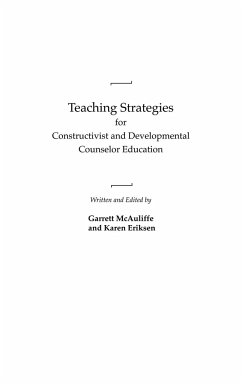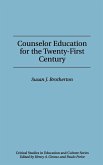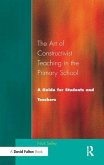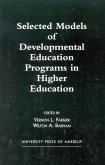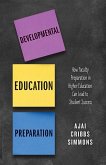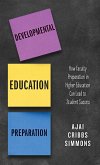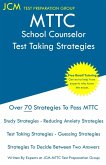An urgent need exists for a guide to innovative mental health education. Despite the hundreds of programs in existence for training students in counseling, human services, social work, and psychology, teachers in such programs have relied on an informal network of information exchange to guide their teaching practice. Yet, constructivist and developmental theories now point to sound, innovative practices for teaching. This volume delineates some of those practices. The authors take the position that, despite years of research on effective adult education, university teaching fails, in practice, to incorporate research-supported teaching principles. Current university instruction is still dominated by the teacher-as-authority model,in which he or she downloads information from the front of the class and expects students to regurgitate it in papers and on exams. This book seeks to counter the limitations of these often-unquestioned methods. The social constructionist and constructive developmental paradigms undergird the descriptions of counselor preparation strategies offered in this book. Such strategies are characterized by the themes of meaning-making, collaboration, equality, and activity in the learning environment.
Hinweis: Dieser Artikel kann nur an eine deutsche Lieferadresse ausgeliefert werden.
Hinweis: Dieser Artikel kann nur an eine deutsche Lieferadresse ausgeliefert werden.

